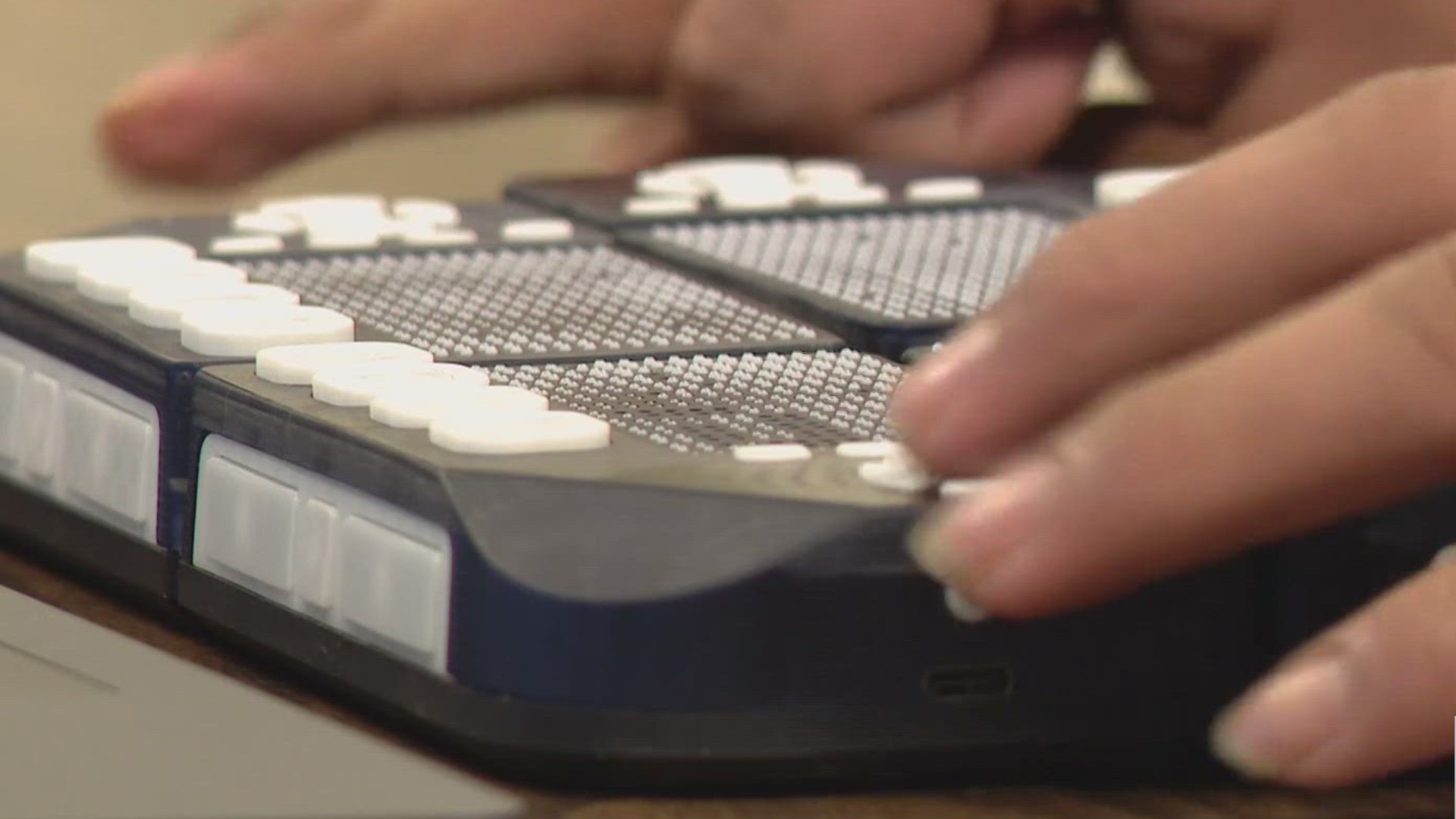WEST LAFAYETTE, Ind. — A little more than a week remains before April's solar eclipse. The phenomenon has captured the attention of people across the United States, just trying to find the best place to see the rare event.
For the blind and visually impaired, this was not always something they could experience. For people like Nina Pineda-Allen, a student at the Indiana School for the Blind and Visually Impaired, the eclipse felt just out of reach.
“It’s something that I never thought I would be able to experience,” said Pineda-Allen.
Technology, however, is bridging the gap for students at the Indiana school, and instead of seeing the eclipse, they are going to touch it thanks to a cadence braille tablet.
“You can actually feel that moving across the screen,” said Pineda-Allen.
Also known as the 'Holy Braille' to some, more than 1,500 tiny dots sync up with a computer capturing the eclipse to simulate the event in live-motion braille.
The invention was spearheaded by Wunji Lau and his co-founder at Tactile Engineering in West LaFayette back in college. Since then, Lau has run a manufacturing plant for the tablet.
Outside of showing the eclipse, the tablet can show a graph change in real time while gathering data, allowing people to play video games and experience a fireworks show by feeling the explosion as it spreads across the screen.
“That’s the goal of the tablet entirely — is to provide of what we have taken for granted as sighted people and provide that via the primary sense that blind people use, which is touch,” said Lau.
The sense of sound is also on the table to help experience the eclipse. Researchers at the University of Arkansas at Little Rock recently acquired two Light-Sound devices to turn sunlight into noise.
“That will help us convert the light from the sun into an electronic signal, and the electronic signal will just modulate the intensity of the sound,” said Gregory Guisbiers, an associate professor at the UALR Physics and Astronomy department.
Guisbiers will also lead an observation of the solar eclipse on on the Little Rock campus, where researchers will also look at the temperature, wind speed and humidity of the event.
Eventually, Pineda-Allen wants to see technology like this become more involved in daily life, and potentially help level the playing field for the visually impaired.

